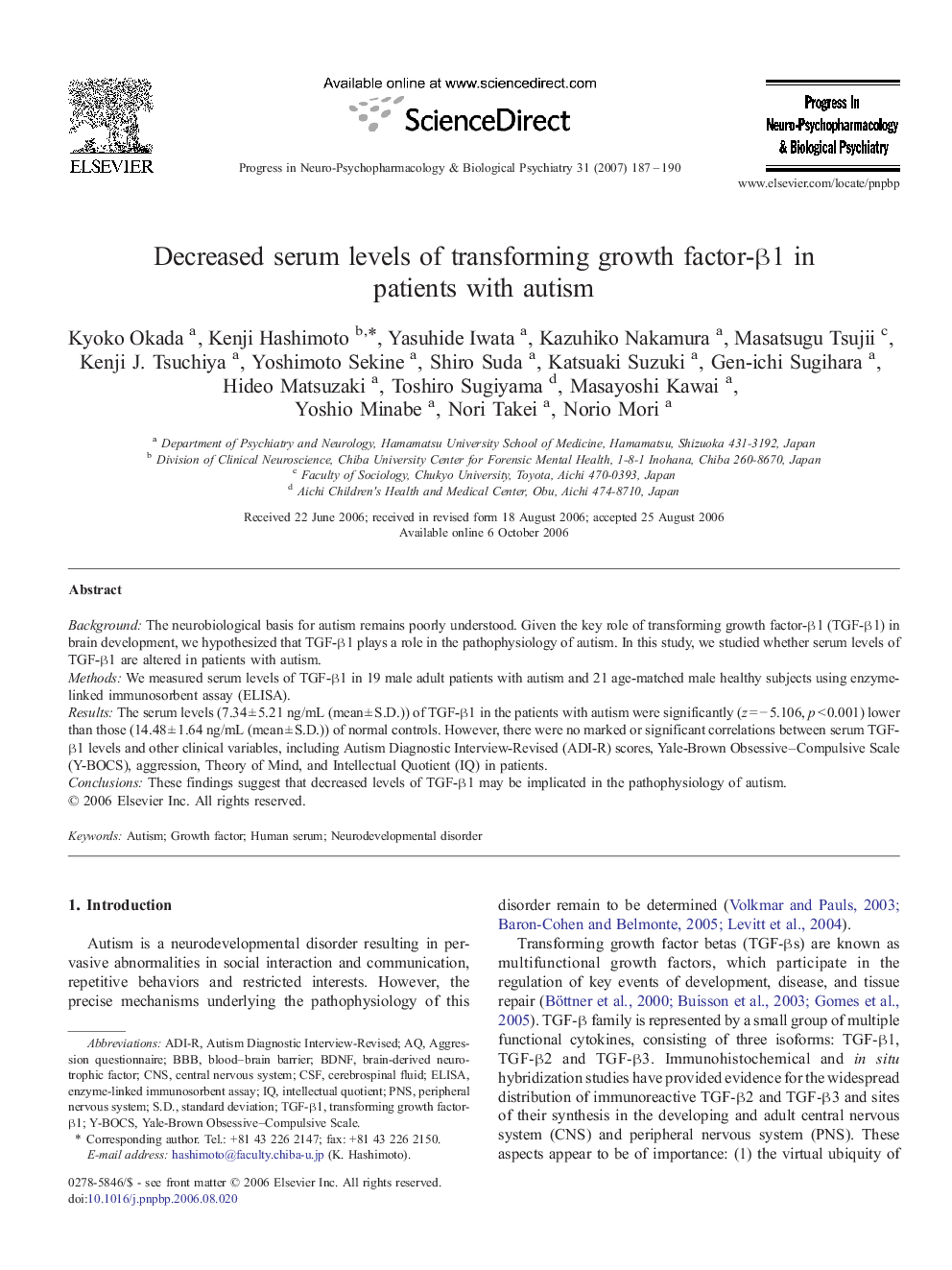| Article ID | Journal | Published Year | Pages | File Type |
|---|---|---|---|---|
| 2566029 | Progress in Neuro-Psychopharmacology and Biological Psychiatry | 2007 | 4 Pages |
BackgroundThe neurobiological basis for autism remains poorly understood. Given the key role of transforming growth factor-β1 (TGF-β1) in brain development, we hypothesized that TGF-β1 plays a role in the pathophysiology of autism. In this study, we studied whether serum levels of TGF-β1 are altered in patients with autism.MethodsWe measured serum levels of TGF-β1 in 19 male adult patients with autism and 21 age-matched male healthy subjects using enzyme-linked immunosorbent assay (ELISA).ResultsThe serum levels (7.34 ± 5.21 ng/mL (mean ± S.D.)) of TGF-β1 in the patients with autism were significantly (z = − 5.106, p < 0.001) lower than those (14.48 ± 1.64 ng/mL (mean ± S.D.)) of normal controls. However, there were no marked or significant correlations between serum TGF-β1 levels and other clinical variables, including Autism Diagnostic Interview-Revised (ADI-R) scores, Yale-Brown Obsessive–Compulsive Scale (Y-BOCS), aggression, Theory of Mind, and Intellectual Quotient (IQ) in patients.ConclusionsThese findings suggest that decreased levels of TGF-β1 may be implicated in the pathophysiology of autism.
